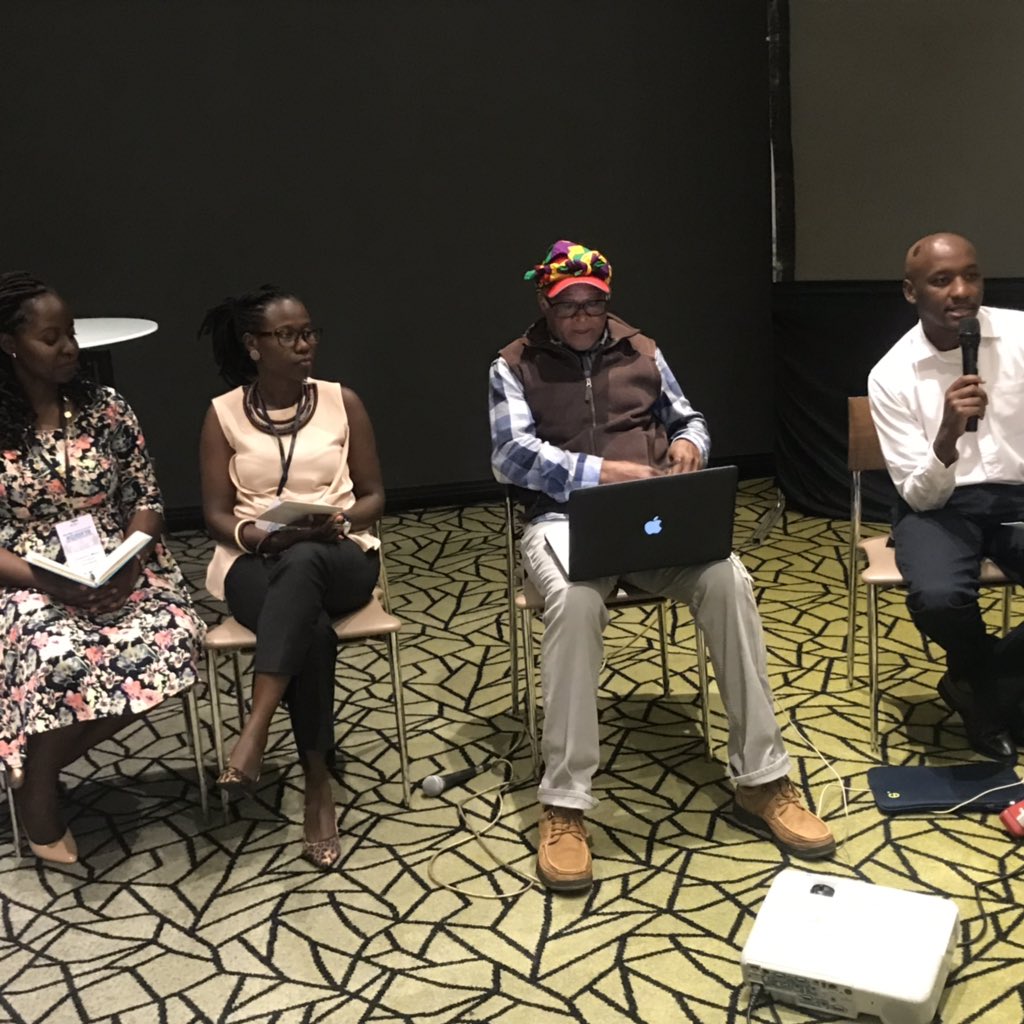KICTANet moderated the session on Community Networks and Alternative models for Internet Access Provision at the Digital Rights Forum 2019 (#DRIF19) in Lagos, Nigeria.
@jossiemiliza Provides a definition of ‘community networks’ @ #DRIF19 with @LORDMWESH Chairing the session. @KICTANet @MwaraGichanga @Vkapiyo pic.twitter.com/6KJ72AZMBs
— Grace Githaiga (@ggithaiga) April 24, 2019
The Session was organised by Association for Progressive Communication (APC), and was based on the premise that a big proportion of the African population either does not have access to the Internet or can’t afford using it. Players in the access ecosystem like the GSMA, a membership organisation for the mobile network operators, estimate that with the current models only an additional 8% of the African population will be connected to the Internet by 2025. New models are needed, and community networks and similar locally owned models are proving to be sustainable alternatives for the provision of universal affordable access. This session covered the current trends and advances of these alternative models in the region.
The moderator was Mwendwa Kivuva of KICTANet. Other Speakers were Josephine Miliza, the Africa Regional Coordinator for the APC-LOCNET project at KICTANet, Rebecca Ryakitimbo, a Google Policy fellow for East Africa at Paradigm Initiative, John Dada, the Chairman of Fantsuam Foundation, and Peace Oliver Amuge representing BOSCO Uganda.
Community Networks were defined as democratic internet networks run by local communities, for the benefit of local communities.
The challenges identified in running the community networks were;
- Access. Marginalized communities do not have access to Internet connections.
- Sustainability: It is difficult to remain afloat unless you get a working sustainable model to maintain the community network.
- Lack of government support
- Funding: Challenges in securing funding for capacity building, infrastructure, and broadband.
- Competence: Skills gap in rolling out, and managing the community networks, and also lack of competence with the end users who have challenges in harnessing the benefits of the Internet.
- Local content: Lack of relevant local content for the masses.
- Language barrier: It is a challenge training technical people who do not speak English, since most of the training materials, and device configuration is in English.
- Licensing
- Taxes
- Electric energy: Power cost was identified as an impediment. Some remote areas have no access to electricity grid, and require initial investment on alternative energy like wind or solar.
- Staff attrition: Staff leave the organisations after training to pursue better opportunities.
Some of the solutions identified to the challenges above are
- Community ownership:- When the community feels ownership of projects they protect the infrastructure and resources.
- Create value that communities can understand. Offer relevant services, eg. online exams to students who have to travel long distances to do them, or offer e-government services to citizens who need them.
- Funding: Find funding models that work. Revenue generating activities by the communities can be ploughed back to fund the community networks. E.g Fantsuan Foundation use revenue generated from renting social halls and trainings to fund their network.
- Capacity building: Technical skills training. If staff leave, have a pipeline of producing more capacity. If you have developed capacity on the community and they have got something positive to do elsewhere, that is an advantage, and constitute community building.
- Government support.
- Tax incentives including for infrastructure, devices, and community network organisations.
- Devices and infrastructure: use of Thin clients to resource community centers. Think Clients are cheaper than stand alone computer systems.
- Partnerships. Build partnerships that enable the community network to thrive.
- Multi-Stakeholder approach.
- Use of free spectrum like TV whitespaces.
- Attaining Critical mass of users who can sustain the network.
- Use of alternative energy like solar power which reduces costs over a long period of time.
- Documentation: lessons learned, best practices, how to build community networks.
KICTANet is partnering with APC in the Local Networks (LOCNET) project for connecting the unconnected through internet community networks. Through the project, KICTANet is hosting the Africa Regional Coordinator for the project Connecting the unconnected: Supporting community networks and other community- based connectivity initiatives. The mission of the project is to build capacity among community networks, knowledge sharing, and fostering proliferation of community networks within the continent.




